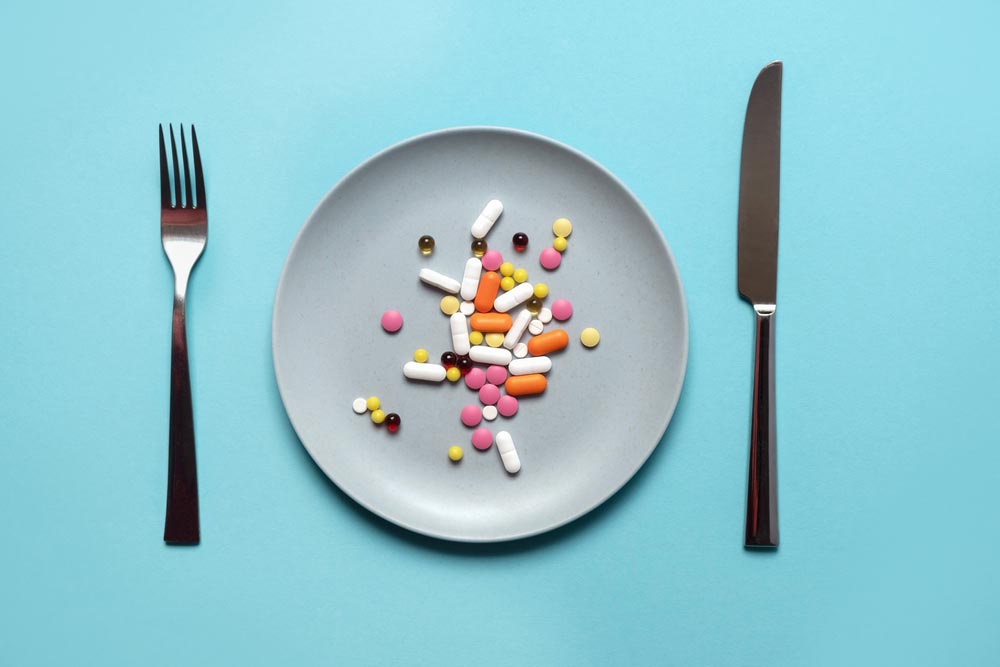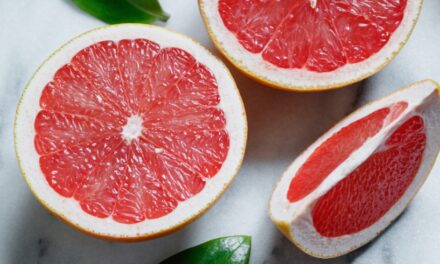Fasting and Supplements—An Expert’s Take

When some hear the word “fasting,” they might worry that they won’t glean enough nutrients. Yet, that shouldn’t be the case for most fasters, who tend to abstain from food for a few hours per day, rather than a day or two. In fact, generally, fasters shouldn’t need supplements any more than do others, says Andy De Santis, RD MPH and author of multiple books, including The 21-Day Intermittent Fasting Weight Loss Plan: Recipes, Meal Plans, and Exercises for a Healthier You. That said, sometimes supplementation can be helpful. Read on for a few of De Santis’ pointers.
Don’t miss out on key nutrients
“People need to be aware that if they engage in intermittent fasting regularly and shift the way they eat, they might omit certain foods from their diet,” says De Santis. For instance, if you used to eat a yogurt for breakfast each day and that was the only serving of dairy in your diet, you’ll want to explore other ways to glean Vitamin D and calcium. However, if for some reason you can’t source it from other foods, feel free to supplement with those nutrients.
Food should come first
“As a dietician, I generally don’t look to supplements for roles that food can fill,” says De Santis. “Better to strategize your dietary pattern to get those nutrients from whole foods.” It’s also important to remember, he says, that food is much more than just nutrients. In fact, “the act of digesting is fundamental to our health. If you don’t use it, you lose it. After all, solid foods are harder to break down than liquids and have different effects on blood sugar and nutrient levels.”
Don’t prioritize fasting over a nutrient-rich diet
“My view is the duration you fast will never be more important than the foods you eat, so don’t bend over backwards and sacrifice quality of diet to fast a little bit longer,” he adds. “Fasting is the icing on the cake of a healthy style of eating.”
Consider supplements that don’t contain carbs or protein
Fasting purists often take an absolutist approach as to whether certain supplements break fasts, says De Santis. In general, many feel that supplements with protein and carbohydrates, like many gummy multivitamins and protein powders, would have this effect since they stimulate the production or release of insulin, as well as potentially stimulating growth-related nutrient sensing pathways. Meanwhile, since probiotics, creatine, caffeine, and individual vitamins or minerals can be devoid of protein and carbs, they should not be viewed this way (though it should be noted that while creatine doesn’t impact insulin levels and therefore will likely not impact ketosis, it has been shown to increase muscle mass, and may impact fasting pathways that are not insulin-dependent). That said, fat-soluble vitamins (like Vitamin D) are better absorbed by the body when taken with food, so try to consume them with meals.
Choose the right supplements
“Supplementation is misrepresented as a must for good health, when I believe it should be re-thought of as a way to complement your diet,” says De Santis. That said, if you choose to supplement, select products based on your individual issues and goals, he counsels.
For those who lift weights or sprint, De Santis might recommend creatine. For gut health issues, he could suggest probiotics or psyllium husk. People who live in colder climates and don’t eat fish could benefit from Vitamin D, while those with anemia might consider iron supplements, he adds.
In general, when you don’t get enough of a specific nutrient, supplementing with it should give you a better health outcome, he says. Overall, get your health professional’s take on whether or not to supplement, and keep in mind Dietary Reference Intakes. After all, “taking too much of any vitamin can be dangerous for anyone,” he warns.





